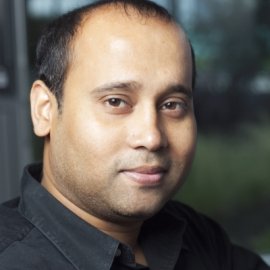Labour Law, West Bengal National University of Juridical Sciences, Calcutta, India - France-BIT Chair

Octobre 2013 à Juin 2014
Having completed his fi rst degree of law from the University of North Bengal India, Supriya Routh went on to complete his LLM from the Vanderbilt University Law School, USA, on a Fulbright Fellowship. His ‘law and society’ PhD research from the Faculty of Law, University of Victoria, Canada, is an interdisciplinary study at the intersection of law, sociology and economics. Supriya Routh’s doctoral research focuses on informal economic activities in developing countries (with
a specifi c focus on India) in order to ascertain if it is possible to improve conditions of informal workers with the help of reconceptualised capabilities developed by Ayartya Sen and Martha Nussbaum. He has published in law and social science journals internationally.
An idea of Labour Law for informal Economic Activities
In his proposed research, Supriya Routh will be analyzing law in the context of informal employment in developing countries. Informal employments are primarily a developing country phenomenon. In countries such as India, informal employment constitutes 93 percent of total employment. Labour law, which is based on the juridical concept of employment relationship in an industry set-up, is incapable of addressing the plight of informal workers. It is in this context that Supriya Routh proposes to develop a labour law framework for the informal economy that envisages participation of integrated institutions, or actors, such as political parties, media, elected representatives, NGOs etc. in the law making process.
Such a labour law framework needs to be contextualized in specific informal economic activities in individual countries because informal economic activities are region-specific. Supriya Routh proposes to analyse specific informal economic activities (e.g., street vending, rickshaw-pulling) in India and other South Asian countries in order to develop a labour law framework for informal workers in the South Asian context. He will draw on theories of social justice in order to develop a theoretical framework for his study. Thus he proposes to engage in the study of actors, procedures and sites of (labour) law making in the South Asian context.